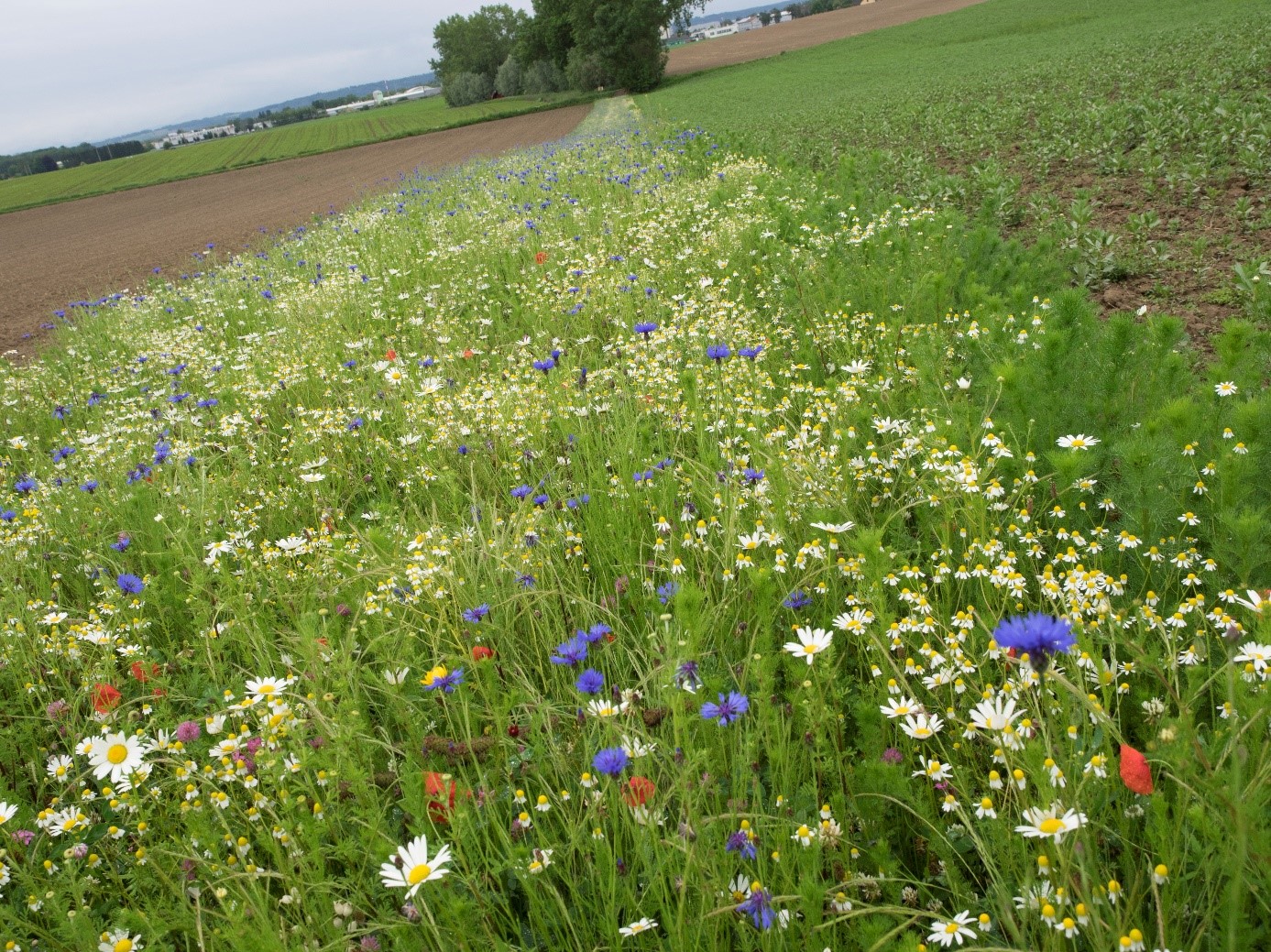For several years now, the Pea Necrotic Yellow Dwarf Virus (PNYDV), which is transmitted by certain species of aphids, has been endangering domestic legume cultivation. An infection, especially in an early plant stage, causes dwarfism, poor pod set and can lead to total failure. Fighting aphids with insecticides is reaching its limits and climate change is further aggravating the problem. This problem is particularly evident in the organic cultivation of grain peas and horse beans. Self-sufficiency for these crops is at great risk due to declining acreage.
EIP-Agri project “Beneficial flower strips”
As part of the EIP-Agri project “Beneficial flower strips”, we are investigating the extent to which it is possible to attract natural enemies of aphids to and into the crop in order to keep the aphids in check and reduce transmission of the virus.
Flowering mixtures
At the Institute of Plant Production, specially composed flowering mixtures made from local wildflowers have been developed, which, as flowering strips of field edges, are intended not only to attract predatory insects, but also to provide food and habitat for a wide range of flower-pollinating insects. If properly cared for, these strips can maintain their important ecological functions for years. By demonstrating the added value of this ecosystem service (natural plant protection), the current skepticism about increasing biodiversity in agriculture should be reduced.
team

Dr. Bernhard Krautzer
Institute management for crop production and cultural landscape
Dr. Wilhelm Graiss
Head of departmentSimilar projects
2448: Scattered meadows
Establishment and maintenance of species-rich pipe grass meadows with regional seeds
2017 - 2022, Graiss Willi
3698: WT aphid
Beneficial flower strips for aphid control
2020 - 2020, Krautzer Bernhard






